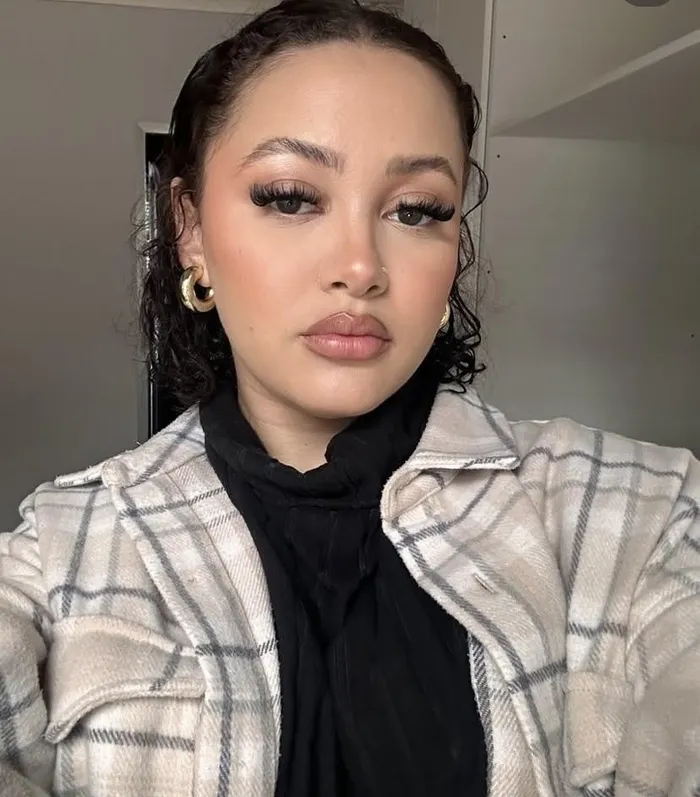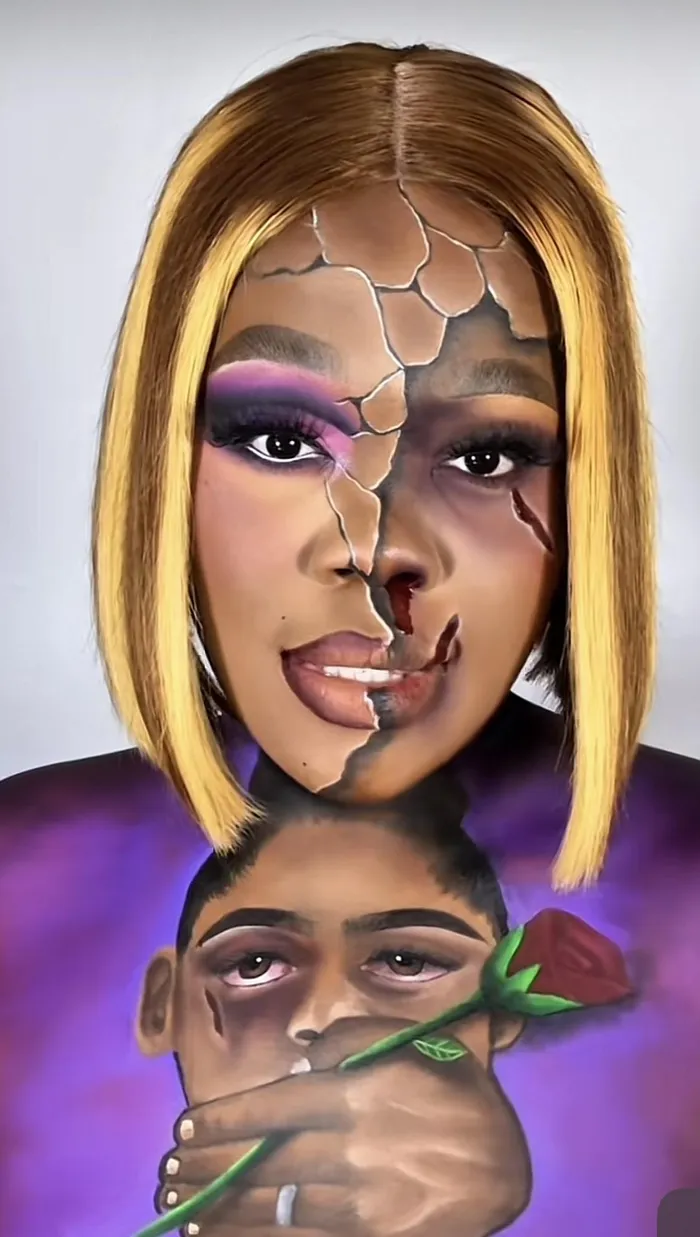
Cape Town-based digital content creator Neevan Ferris has opened up about being a GBV survivor.
Image: Instagram
In a world where social media amplifies voices and sparks collective action, a wave of South African Gen Z creators is using their platforms to tackle one of society's darkest plagues: gender-based violence (GBV).
These young trailblazers are not just speaking out - they’re creating safe spaces for survivors, sparking conversations and mobilising communities online and offline.
Their boldness is more than a call for awareness; it’s a fight for change, one post, video and comment at a time.
It began when Cape Town-based digital content creator Neevan Ferris shared her story. In a now-viral TikTok video, Ferris, draped in a delicate white cover-up on Clifton Beach, bravely revealed her experience as a GBV survivor.
Accompanied by a popular TikTok soundbite, “Hi, my name is Justin Fourie, and I’m a survivor,” sampled from Noah Kahan’s "You’re Gonna Go Far," the video struck a chord with thousands.
Ferris opened her heart: “I survived GBV before I was even 20. I almost lost my life to someone I loved and trusted. I’m far from healed, but I’ll get there.”
Her vulnerability resonated far beyond her immediate audience, creating a ripple effect. Her TikTok became a portal where other survivors, many trembling with anxiety, found the courage to share their own stories.
Under Ferris’s post, the floodgates opened. Survivors from all walks of life filled the comments section with their accounts:
These raw, heartbreaking confessions testify to GBV’s pervasiveness. Yet more striking is the community of solidarity these creators have built - a safe space where survivors feel seen, heard, and validated.
Ferris’s bravery inspired other influential creators to join the fight. South African rapper and social media personality Kayla Peters, known as "The Real Kay Medusa", shared her own survival story and encouraged discussion among her followers, while applauding Ferris’s courage.
“She gave me the strength to speak out,” Peters said, echoing countless others.
"Maybe 💜 maybe one day i’ll be brave enough to tell my story💜."
Award-winning content creator Simphiwe Mbatha also joined the cause, using his platform to amplify survivor stories and raise awareness about South Africa’s alarming femicide rates, incorporating themes of love, accountability and empowerment into his makeup artistry.

Discover how South African Gen Z creators are harnessing the power of social media to combat gender-based violence,
Image: TikTok/Colour me sim
According to the World Health Organization (WHO), South Africa is one of the most dangerous countries for women, with a woman killed every three hours due to GBV.
These creators aren’t just sharing statistics - they’re making them personal, forcing us to confront the human faces behind the numbers.
The global solidarity against femicide:
The movement isn’t confined to South Africa. Tumelo, a South African expat known as "UK Thanos" on TikTok, leverages her global platform to rally international support. In a poignant video, she explained why she changed her profile picture to a blank purple canvas:
“Purple represents solidarity with GBV victims. Every three hours, a woman in South Africa is killed because of GBV. That could be my sister, my mother, or even me when I go back home. Something has to change,” she said.
The message is clear: this isn’t just a South African issue. It’s a global crisis, and we all have a role to play.
The stories shared by these creators are more than accounts of survival - they’re acts of resistance. By dismantling the shame surrounding GBV, they empower others to speak up, seek help, and demand justice.
Research from "The Journal of Interpersonal Violence" suggests that storytelling can be a powerful tool for healing and raising awareness, enabling survivors to reclaim their narratives while educating the public.
But this movement goes beyond awareness. It’s about action. Platforms like TikTok and Instagram are no longer just spaces for entertainment - they’re battlegrounds for social justice.
As Ferris, Peters, and Tumelo demonstrate, these platforms can challenge societal norms, hold perpetrators accountable, and push for systemic change.
How you can support the movement:
The beauty of this movement lies in its accessibility. You don’t need a massive following to make a difference. Here’s how you can get involved:
1. Educate yourself and others: Learn about GBV and its root causes. Share verified resources and statistics to spread awareness.
2. Support survivors: Listen without judgment, offer support, and respect their boundaries.
3. Amplify voices: Share survivor stories (with their consent) to help break the silence.
4. Donate to GBV Organisations: Support local and international groups working to combat GBV, like Rape Crisis Cape Town Trust, Women for Change or POWA (People Opposing Women Abuse).